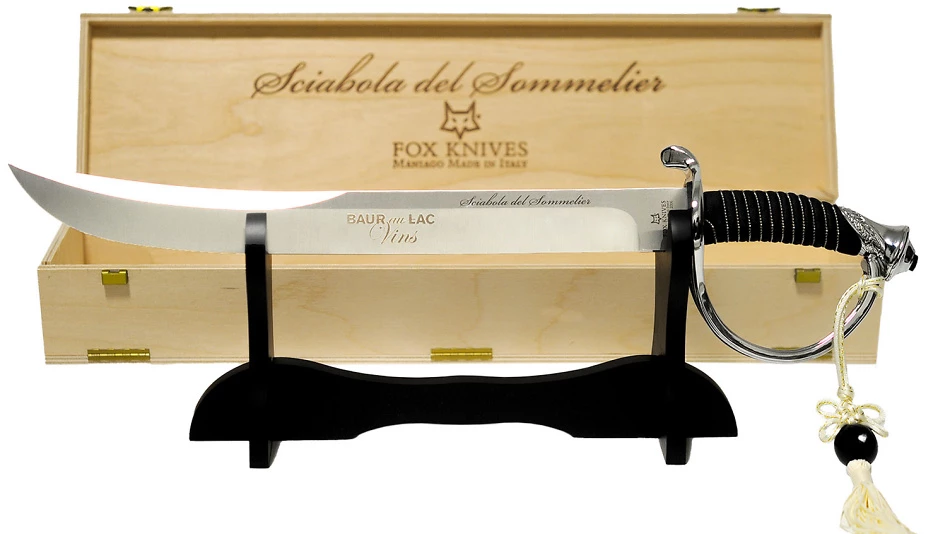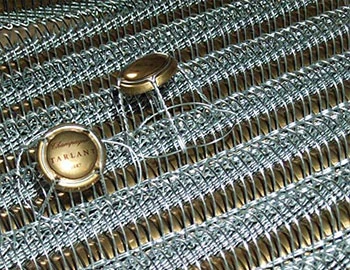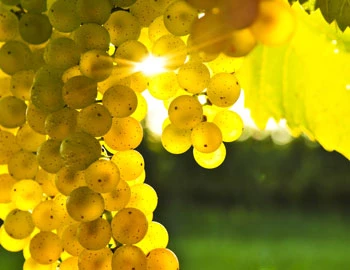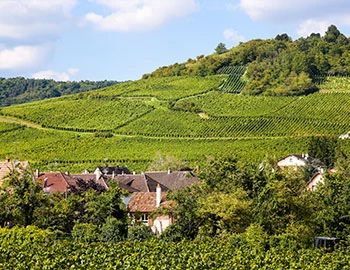
Tarlant l'Enclume 2011
AOC Champagne, 750 ml

| Grape variety: | Chardonnay |
| Producer: | Tarlant |
| Origin: | France / Champagne |
Description
The latest creation comes from the single vineyard L'Enclume in Oeuilly. This champagne, made from 100% Chardonnay and without dosage (Brut Nature), reflects the terroir and its mineral structure to perfection. The long maturation on the lees reveals intense aromas of ripe apple, pear, brioche and a hint of hazelnut. On the palate, the champagne is characterised by fresh citrus notes, a gentle perlage, pronounced minerality and a subtle salty note. Ideal as an accompaniment to oysters, scallops, white meat and mature cheese.
Celebrate the Art of Sabring!

With its elegant design, this champagne sabre is not only an impressive eye-catcher at any celebration and an indispensable tool for stylish sabering, but also the perfect gift for all passionate sparkling wine lovers.
Attributes
| Origin: | France / Champagne |
| Grape variety: | Chardonnay |
| Ripening potential: | 1 to 5 years |
| Drinking temperature: | 8 to 10 °C |
| Vinification: | bottle fermentation |
| Harvest: | hand-picking |
| Maturation: | on the yeast |
| Maturation duration: | 84 months |
| Volume: | 12.0 % |
| Note: | Contains sulphites |
Tarlant
The Tarlant family can look back on a long family history, one that can be traced back to 1687. For almost three and a half centuries they have devoted themselves to viticulture in the Marne Valley in the Champagne region. But it was only after World War I that the first hugely successful Champagne Tarlant was created. Today, brothers Jean-Mary and Benoît operate the family-owned company.
With a total of 14 hectares spread over 55 plots, the winery is very small compared to other Champagne houses. Tarlant is a real insider tip, featured on the wine list of some of the world's most prestigious restaurants, and it was not easy for Baur au Lac Vins to come by a few bottles. These sparkling wines are unusual, but all the more fascinating for it.
Vigne d'Antan, Vigne d'Or and La Vigne Royale belong to the winery's limited premium range. The grapes each come from a particular location. The Chardonnay vines for the Vigne d'Antan are authentic, meaning they are ungrafted. The Vigne d'Or is made from 100% Pinot Meunier, which is really unusual in the Champagne region, and can be described as a rarity. La Vigne Royale is a pure Pinot Noir.
The hand-picked grapes are gently pressed in the traditional basket press. The fermentation and maturation of the basic wines are carried out in barrels. Tarlant attaches great importance to a particularly long bottle ageing on the yeast, so the flavours can fully develop. This can easily take seven to ten years. These Champagne wines are always dry and receive little or no dosage.
Even for the Champagne connoisseur, these hidden gems will make for a most unusual discovery!

Chardonnay
King or beggar?
Hardly any variety of vine shows such a broad spectrum of quality as the Chardonnay. Its wines range from faceless neutrality to breath-taking class. It is an extremely low-maintenance vine, which explains why it is grown around the world – even in places where it probably should not be. The aromas of the Chardonnay variety are not very pronounced: a bit of green apple, a little hazelnut; in warmer latitudes, also melon and exotic fruits. The wines are often defined by maturing in casks. They develop more or less subtle notes of butter, toasted bread and vanilla. The grapes achieve their highest expression in their region of origin, Burgundy. Its heart beats in the Côte de Beaune: one might think of the plant growth of Meursault or Puligny-Montrachet. With their finesse and complexity, they can survive for decades. Chardonnay also achieves first class in some Blanc-de-Blancs champagnes. It additionally yields great wines in the Burgundian Chablis, and increasingly in Australia and Chile. A simple rule of thumb for pairing with food: When butter and cream are involved, you cannot go wrong with Chardonnay.

France
France – Philosophy in a bottle
According to French philosophy, wine should be an expression of the soil and climate. They use the word “terroir” to describe this. Terroir makes every wine different, and many especially good. French wine is regarded worldwide as an expression of cultural perfection. The French believe that humans are responsible for the quality of the berries, the vine variety for their character, and nature for the quantity. This philosophy can be expressed succinctly as: “the truth is the vineyard, not the man.”


